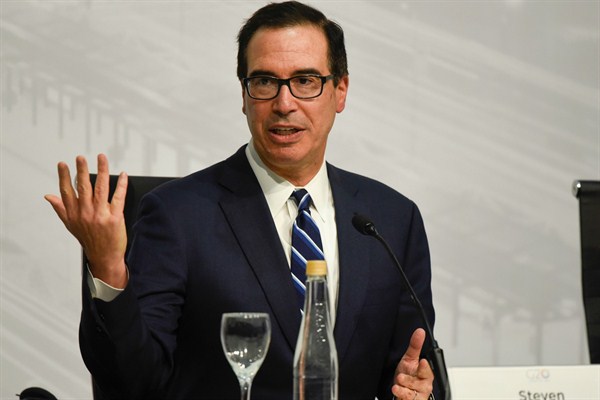Officials from the European Union are headed to Washington this week for trade talks with the Trump administration, but nobody is optimistic. If the talks don’t go well, President Donald Trump has already said he is prepared to follow through on his threat of imposing further tariffs, as high as 25 percent, on cars and car parts imported from the EU. “If we don’t negotiate something fair, then we have tremendous retribution, which we don’t want to use, but we have tremendous powers,” Trump told reporters at the White House last week. “Including cars—cars is the big one.”
However the meeting with European Commission President Jean-Claude Juncker goes, one thing is clear from this latest chapter in Trump’s quickly unfolding trade wars: Even relatively brief trade disputes can inflict costs that persist long after the war ends.
For one thing, there are direct costs arising from the disruption that higher tariffs wreak on supply chains. The Trump administration’s failure to quickly negotiate resolutions to its new trade disputes, or to conclude any new agreements, also puts U.S. exporters at a disadvantage in markets where trading partners continue to negotiate deals. And there is a range of other potential costs that could hit American producers and consumers for years, even if the current trade disputes are somehow resolved soon. But that is not looking particularly likely at the moment, and the longer the disruption lasts, the higher the risk to broader economic growth, both in the United States and around the world.

